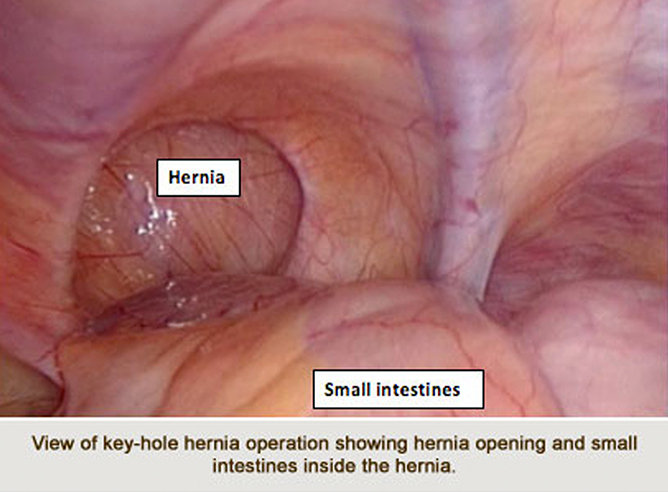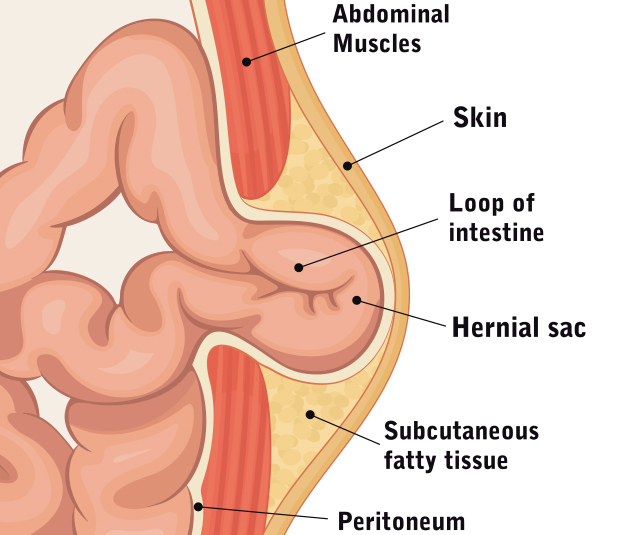Hernia
What Are The Different Types Of Hernia?
The most common type of hernia is the inguinal hernia. This inguinal hernia occurs in the groin region and it occurs mainly in man. It is uncommon in women. Another type of hernia is the incisional hernia. Incisional hernia occurs due to poor wound healing after abdominal surgery. The hernia occurs directly over the surgical scar. Other types of hernia like femoral hernia and epigastic hernia are rare.
What Are The Symptoms Of Hernia?
The symptoms of the hernia depends the severity of the hernia. Early hernia may not have symptoms at all. Patient may feel abdominal discomfort or pain upon exertion like prolonged walking or exercise. A protruding lump can be felt in the abdomen if the hernia is significant in size. The protruding lump typically disappears when the patient lies down. In male patient with large inguinal hernia, the groin lump may extend all the way down to the scrotum. In an irreducible hernia, the pain can be excruciating. If intestines are involved in the irreducible hernia, blood supply to the intestines may be cut off and result in dead bowel in a few hours. This is an emergency and surgery should be performed as soon as possible.
What Are The Treatment Options For Hernia?
The conventional method to repair the hernia is via the open method. This is performed via a 4to 5cm incision at the hernia site. A non-absorbable mesh is commonly placed to reinforce the repair.


